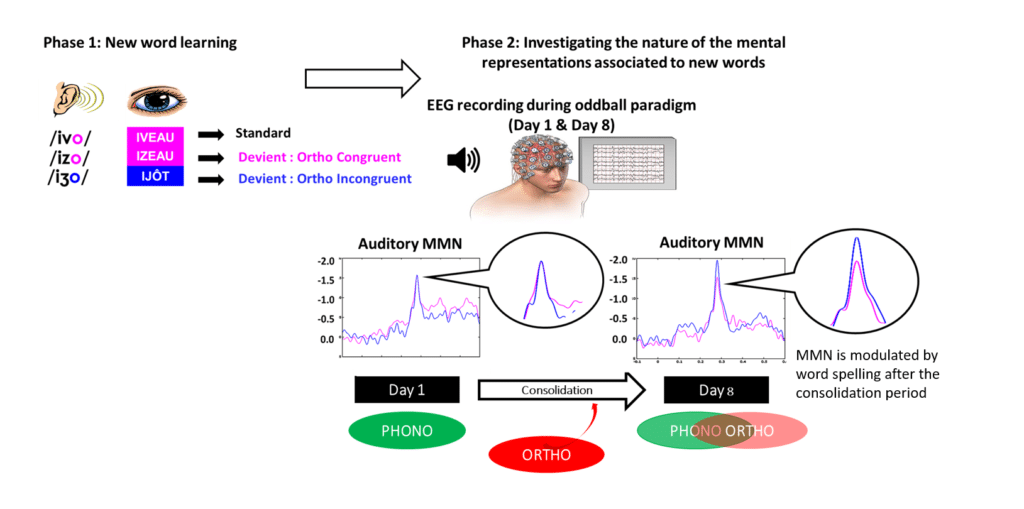
The ability to understand speech in one’s native language is thought to be universal. This intuitive assumption implies that literate and illiterate individuals share at least the most basic speech processing skill that allows them to recognise spoken words. Our study provides neurophysiological evidence (Mismatch Negativity) against this claim by showing that speech representations stored in literates’ “phonological” lexicon are contaminated by orthographic features. This observation questions the universality of psycholinguistic models of spoken word recognition which have been implemented exclusively based on findings from (highly) literate participants.
Chotiga Pattamadilok, Shuai Wang, Deirdre Bolger, & Anne-Sophie Dubarry.
« Learning to Read Transforms Phonological into Phonographic Representations ».
2025. Scientific Reports 15 (1): 5398. – @HAL
